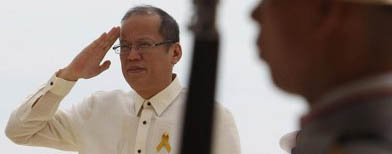
For the fourth time, President Aquino will report to the nation on his assessment of the country’s situation and his own agenda for his fourth year in office. It is expected that he will also elaborate on his program for the last half of his term, which is scheduled to end in June 30, 2016. Lastly, he may indicate his planned legacy he will bequeath to the nation.
That the national economy thrived during the last three years or the first half of the Aquino administration is a given. There are plenty of signs such as the 6-7 percent growth of the gross national products and gross domestic products, the credit upgrades by the major credit rating agencies, the top performances of major industries such as electronics, business outsourcing operations, construction, real estate, mining, agriculture, and tourism, and the ceiling-busting record run by the Philippine stock exchange.
There are also the gains in the anti-corruption campaign with personalities of the past administration in jail, tightening of rules in the bids and awards of projects, the rise in the importance of the Statement of Assets, Liabilities and Net worth (SALNs), and more transparency in the bureaucracy.
The campaign against poverty also had its moments, such as the cash transfer program to the poorest of the poor, the massive infrastructure-building binge under the Public-Private Partnership (PPP), the victories in the Coco Levy ownership, and the pursuit of major land reform targets.
All these produce the hope among the people of an eventual freedom from want and the end to poverty under a democratic regime. However, the doubts are there. Where are the obstacles?
The first and possibly the insurmountable one are the members of the economic and political elite itself. The benefits of the post-Marcos democracy have always brought it unprecedented political and economic advantages with few encumbrances. Ironically, the members of the elite include those who benefited from the Marcos dictatorship, including the Marcos family itself.
As a key member of the elite, the Aquino family stood out as the one most in favor of a democratic regime. They are expected to propagate and support a rules-based regime that would curb the piratical practices of the rest of the elite and level the playing field for business and society.
However, the 2013 elections revealed the limits of the elitist concept of democracy. It does not encompass the broadening of people’s participation in democracy nor the sharing of benefits of economic growth with the rest of the people. Casting aside the lip service to the ideals of the Lincoln democracy of the people, by the people and for the people, elite democracy would rather confine the people as electoral fodder whose votes are harvested through cash, coercion, or mediagenic antics.
Real political and economic democracy for the people is the one legacy that even the Aquino administration will not be able to claim. Aquino legacy-building may have to be done elsewhere.

0 comments:
Post a Comment